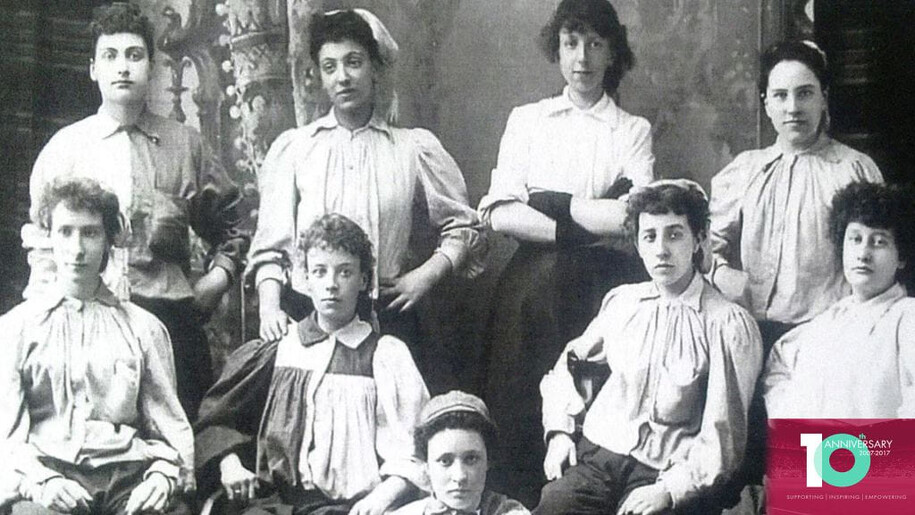News
Where is the Black History of Women’s Football?
20 October 2017

Emma Clarke (back row second left) - her story adds richness to the history of black women in Victorian period
Thanks to the efforts of historians and activists, the name Walter Tull is one that no longer often triggers a response of “who?”, despite it being discovered recently that Tull was not England’s first black professional football player, writes Melissa Bennett.
Even for those who are unsure of the black history of the men’s game, a quick Google search can tell you about ‘England’s first black professional footballer’, or ‘who was the first black player to captain England?’, and even the ‘first black English player to score in FA Cup Final’. Add the word 'woman' to these search terms, and you find yourself in a different situation: internet silence. You are either confronted with the same articles about the men’s game, or articles about black women who are currently forging a career. The history of black women in football, unlike that of black men, is something that remains hidden.
What is causing this situation?
It is difficult to decide what is to blame for this situation. Are search engine algorithms just not picking this information up? This could be the case. Try searching for ‘first black England manager’ on Google and only one result on the first page refers to Hope Powell. The ‘featured snippet’ that Google uses refers to Paul Ince. Click on ‘about this result’ and an article written by Google informs you that ‘Google programmatically determines that a page contains a likely answer to the user's question, and displays the result’. This is something that we have the power to change. You can offer feedback on these featured snippets, checking a box such as ‘this is misleading or inaccurate’ (perfect in this context) and write comments. Perhaps if everyone who reads this article, performs that search, and does exactly that, we will start to see some changes.
Hidden Figures
It is important that this changes so that some of these hidden figures are brought into the light. This is especially true during times like these, when it wouldn’t be surprising if black women were put off engaging with the game in light of the handling of Eni Aluko’s complaints by the FA. Eni Aluko arguably made football history this week, but she is not the first black woman to do so.
Take for example Emma Clarke, recently discovered to be Britain’s first black female footballer, who played in one of the sport’s earliest recorded games in the 1890s. Emma’s story dismantles popular myths that black communities were not present in Britain until the arrival of the Windrush in 1948. She was born in Liverpool in 1876, a few years before the deaths of two much more prominent black Victorian women: Sarah Forbes Bonetta and Mary Seacole.
Her story adds a richness to the history of black women in the Victorian period, demonstrating that they were also successful in the area of sport and challenging stereotypes that would probably cause many people to imagine black women as domestic servants.
Also worth mentioning is the first person to break Peter Shilton’s record as England's most-capped international, another black woman, Rachel Yankey. Although Rachel no longer holds the record, it’s important to recognise that when she did break it, the record had stood for over 20 years. That’s longer than Alan Shearer’s record as top Premier League scorer has lasted so far.
Alongside Hope Powell’s pioneering time as England manager, these stories of success could empower more black women to get involved in the sport at all levels and in a variety of positions. Not only are they welcome, their history demonstrates that they can thrive and even lead.
What more can we do?
Hidden histories are slowly being unearthed, and forgotten heroes publicised. But what more can we do? We can give feedback on those search results that hide the achievements of women (of any background) beneath those of men.
We can dig through the archives to find more women like Emma Clarke. We can take part in, or organise, Wikipedia edit-a-thons to make history more accessible. Most importantly though, this Black History Month let’s make some time during all of the excitement to share the history of black women in football.
Whether it be at an event, in a casual conversation, or on our social media pages, we have the influence and the opportunity to bring more of these stories to light.
Share this article
